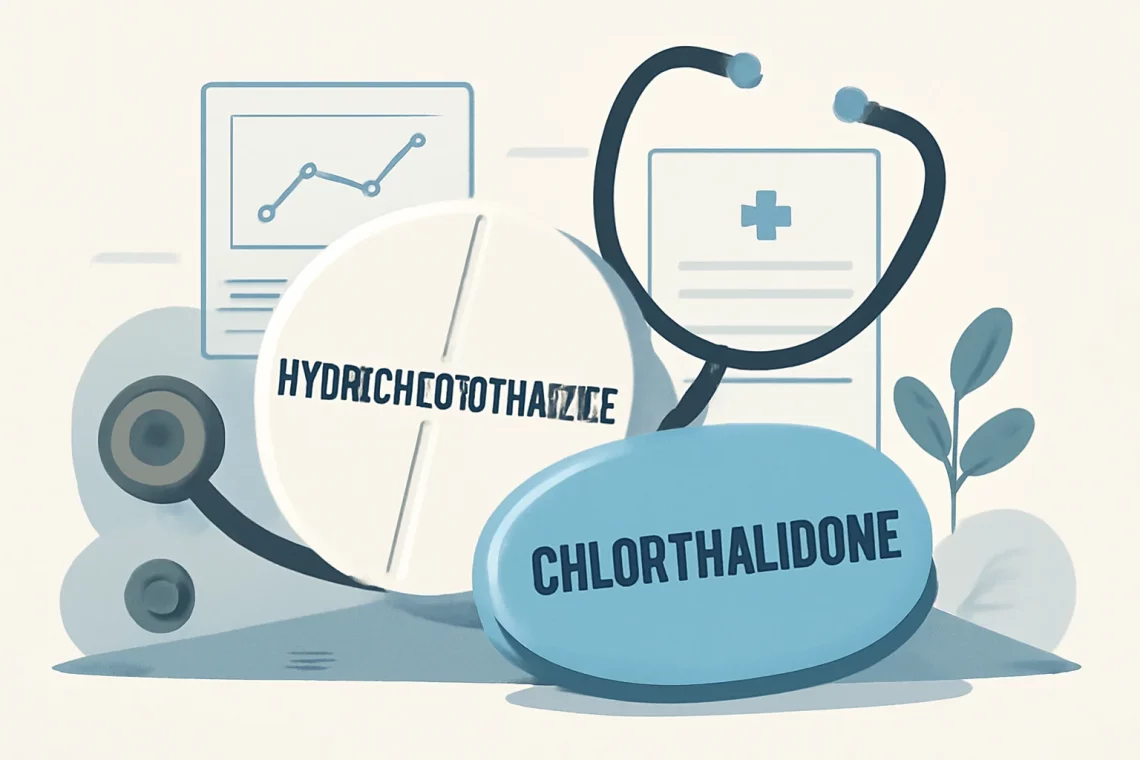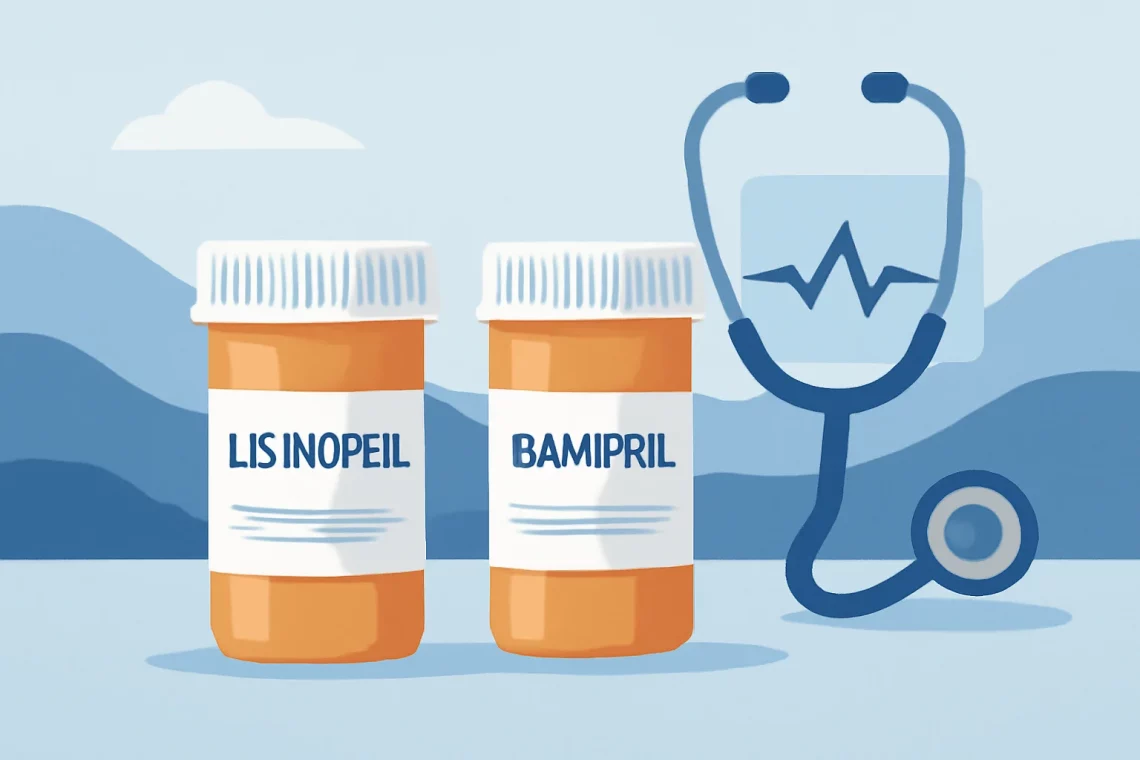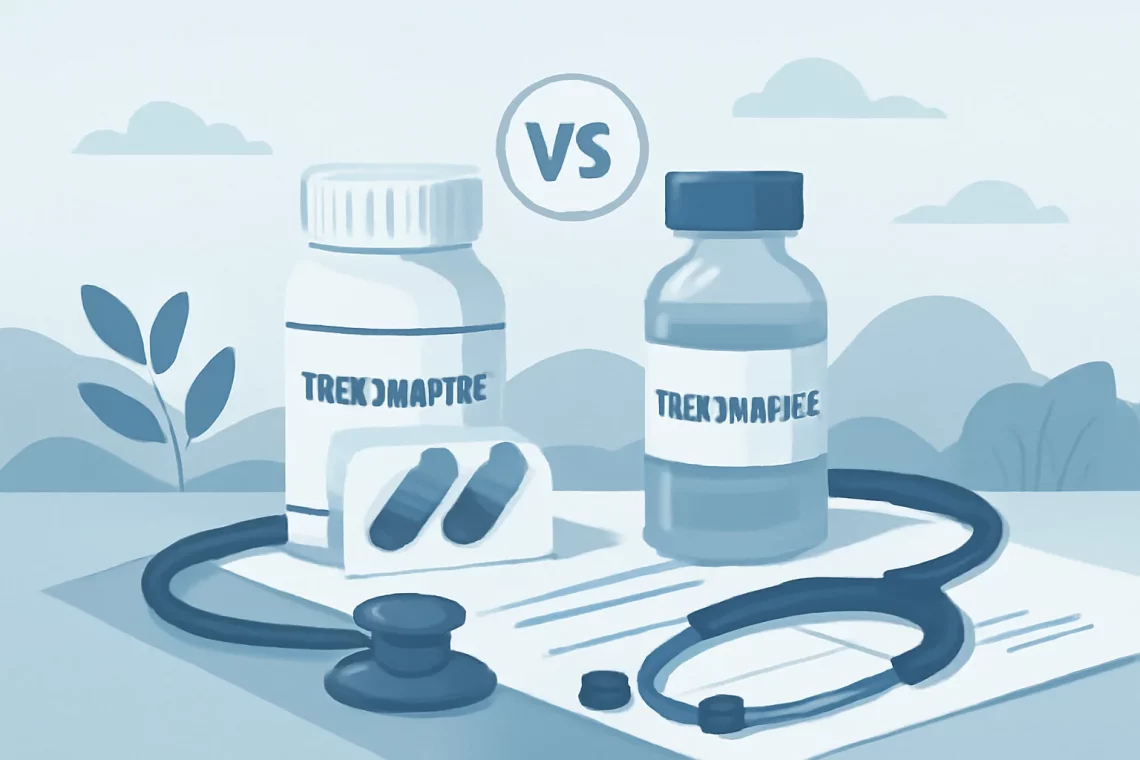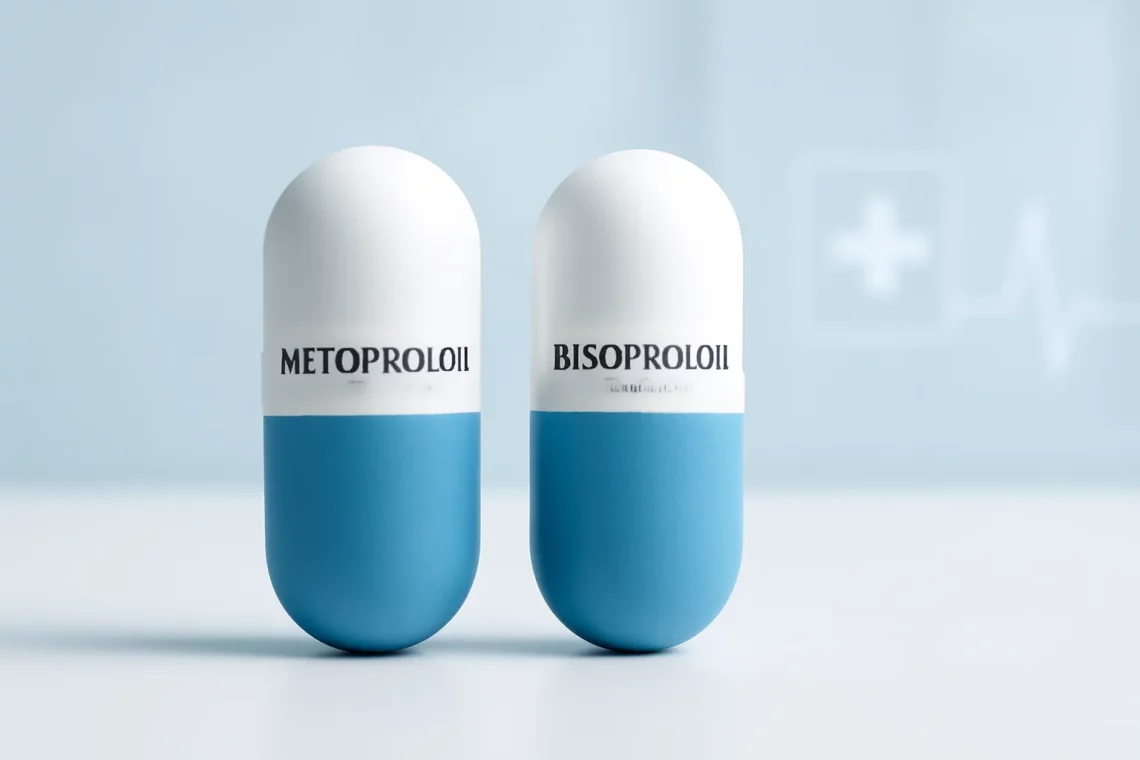-
Nitroglycerin vs Isosorbide: Which Is Right for Your Heart Health?
Nitroglycerin and isosorbide are two medications commonly used in the management of cardiovascular conditions, particularly those related to angina pectoris and heart failure. Both of these compounds belong to a class of drugs known as nitrates, which are essential for dilating blood vessels and improving blood flow to the heart. This vasodilatory effect can significantly alleviate the symptoms of chest pain and reduce the workload on the heart. Understanding the differences and similarities between nitroglycerin and isosorbide is vital for patients and healthcare providers alike. These medications, while serving similar purposes, have distinct properties, mechanisms of action, durations of effect, and potential side effects. Consequently, a thorough comprehension of each…
-
Hydrochlorothiazide vs Chlorthalidone: Choosing the Right Diuretic
High blood pressure and fluid retention are common health challenges faced by many individuals. Among the various treatment options available, thiazide diuretics, such as hydrochlorothiazide and chlorthalidone, have gained popularity due to their effectiveness in managing these conditions. Both medications work by promoting the excretion of sodium and water through the kidneys, helping to lower blood pressure and reduce swelling. However, despite their similar uses, these two drugs have distinct properties that can influence their effectiveness, side effects, and suitability for different patients. The choice between hydrochlorothiazide and chlorthalidone often depends on various factors, including the patient’s overall health, the presence of other medical conditions, and individual responses to treatment.…
-
Lisinopril vs Ramipril: Which Blood Pressure Medication is Right for You?
High blood pressure, also known as hypertension, is a common condition that affects millions of people worldwide. It is often referred to as a “silent killer” because it may not present any noticeable symptoms until serious complications arise. Managing hypertension is crucial to reducing the risk of heart disease, stroke, and other health issues. Various medications are available to help control blood pressure, and two of the most commonly prescribed classes of these medications are ACE inhibitors. Lisinopril and Ramipril are both effective options within this category, but they have distinct characteristics, benefits, and potential side effects. ACE inhibitors work by relaxing blood vessels, allowing blood to flow more freely,…
-
Terbinafine vs Itraconazole: Choosing the Right Antifungal Treatment
In the realm of antifungal treatments, two names frequently come up: terbinafine and itraconazole. Both medications are utilized to combat a range of fungal infections, yet they operate through different mechanisms and are indicated for varied conditions. As the prevalence of fungal infections continues to rise, understanding the nuances of these treatments becomes increasingly important. Terbinafine, primarily available in oral and topical forms, is known for its ability to effectively treat dermatophyte infections, particularly those affecting the skin and nails. On the other hand, itraconazole belongs to a broader class of antifungals and is effective against a wider variety of fungi, including certain endemic mycoses. The choice between these two…
-
Metoprolol vs Carvedilol: Which Beta-Blocker is Right for You?
Metoprolol and carvedilol are both medications primarily used to manage cardiovascular conditions, but they belong to different classes of drugs and have distinct mechanisms of action. Understanding their differences, uses, and potential side effects is essential for patients and healthcare providers alike. While both medications are effective at treating high blood pressure, heart failure, and other heart-related issues, they have varying profiles that can make one more suitable than the other depending on individual patient needs. As patients navigate their treatment options, it’s crucial to consider factors such as existing health conditions, potential interactions with other medications, and personal health goals. The choice between metoprolol and carvedilol often comes down…
-
Probuphine vs Sublocade: A Comprehensive Comparison for Treatment Options
The opioid epidemic has become a pressing public health issue, prompting the development of innovative treatment options to combat addiction. Among these options are Probuphine and Sublocade, two medications designed to help individuals struggling with opioid use disorder. Both of these treatments utilize buprenorphine, an opioid partial agonist, but they differ significantly in their administration methods and overall treatment approaches. Understanding the nuances between these two medications can empower patients, their families, and healthcare providers to make informed decisions regarding treatment plans. With a focus on long-term recovery, these treatments offer unique benefits and challenges that warrant careful consideration. As the landscape of addiction treatment continues to evolve, exploring the…
-
Metoprolol vs Bisoprolol: Key Differences and Similarities Explained
Metoprolol and bisoprolol are two commonly prescribed medications that belong to the class of drugs known as beta-blockers. These medications are primarily used to manage cardiovascular conditions, including hypertension (high blood pressure), heart failure, and certain types of arrhythmias (irregular heartbeats). Beta-blockers work by blocking the effects of adrenaline on the heart, which helps to reduce heart rate and lower blood pressure. In recent years, there has been significant discussion among healthcare providers and patients regarding the differences and similarities between metoprolol and bisoprolol. Both medications have proven effective, but they do have distinct characteristics, mechanisms of action, and side effect profiles that may influence the choice of one over…
-
Entresto vs Ramipril: Which Heart Failure Treatment is Better?
Heart disease remains one of the leading causes of morbidity and mortality worldwide. As healthcare continues to evolve, so do the treatment options available to patients struggling with cardiovascular issues. Among the various medications prescribed, Entresto and Ramipril have emerged as two prominent choices for managing heart failure and hypertension. Both medications serve critical roles in treating cardiovascular conditions, yet they operate through different mechanisms and offer distinct benefits and potential side effects. Understanding the nuances between these two drugs is essential for patients and healthcare providers alike. Each medication has its unique composition, dosing strategies, and indications, making it vital to grasp how they compare in effectiveness and safety.…
-
Lisinopril vs Enalapril: Which Medication is Right for You?
High blood pressure, medically known as hypertension, is a prevalent condition that affects millions of individuals worldwide. Managing hypertension is crucial for reducing the risk of serious health issues such as heart disease, stroke, and kidney failure. Among the various treatment options available, two commonly prescribed medications are Lisinopril and Enalapril. Both belong to a class of drugs called angiotensin-converting enzyme (ACE) inhibitors, which work by relaxing blood vessels and lowering blood pressure. Understanding the differences and similarities between these two medications can help patients and healthcare providers make informed decisions about treatment options. While both Lisinopril and Enalapril serve the same primary purpose, they have unique characteristics, including varying…
-
Ativan vs Buspar: Comparing Anxiety Medications and Their Effects
Ativan and Buspar are two medications commonly prescribed for anxiety and related disorders. While they are both used to alleviate symptoms of anxiety, they belong to different classes of drugs and have distinct mechanisms of action, side effects, and usage considerations. Understanding the differences between these two medications can help patients make informed decisions about their treatment options. Ativan, known generically as lorazepam, is a benzodiazepine that works by enhancing the effects of a neurotransmitter called gamma-aminobutyric acid (GABA) in the brain. This results in a calming effect, which can help reduce feelings of anxiety and promote relaxation. On the other hand, Buspar, or buspirone, is an anxiolytic that does…






































